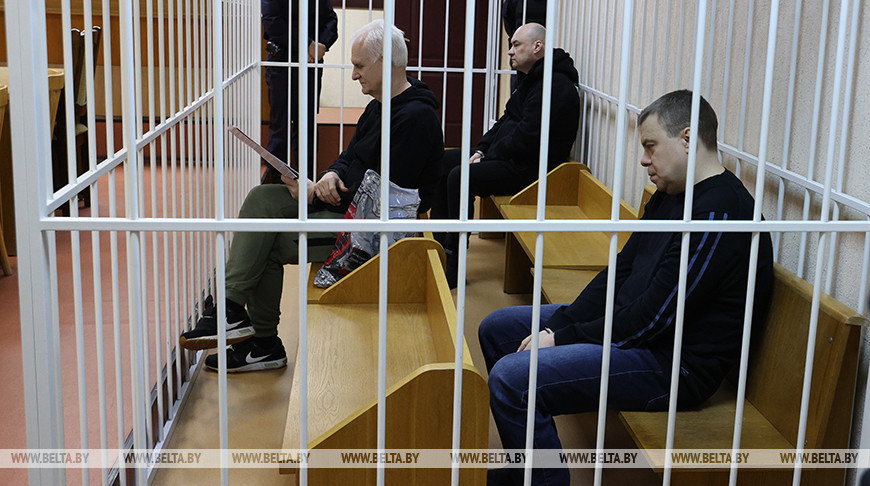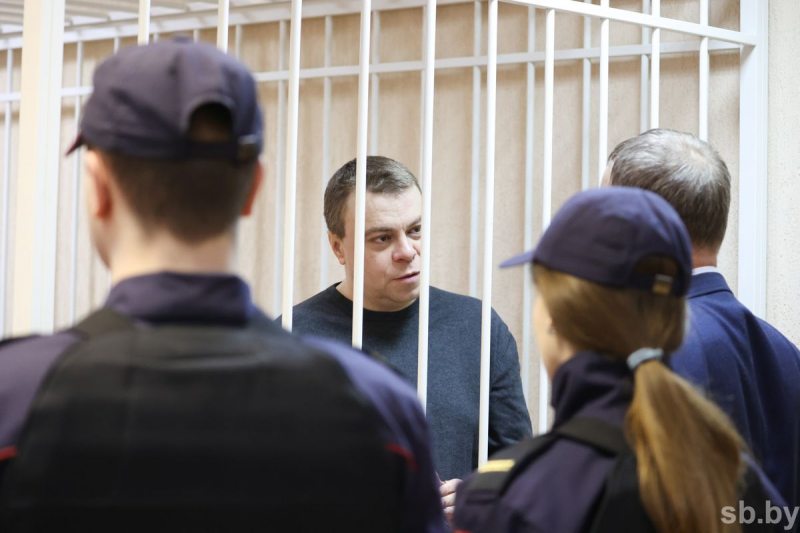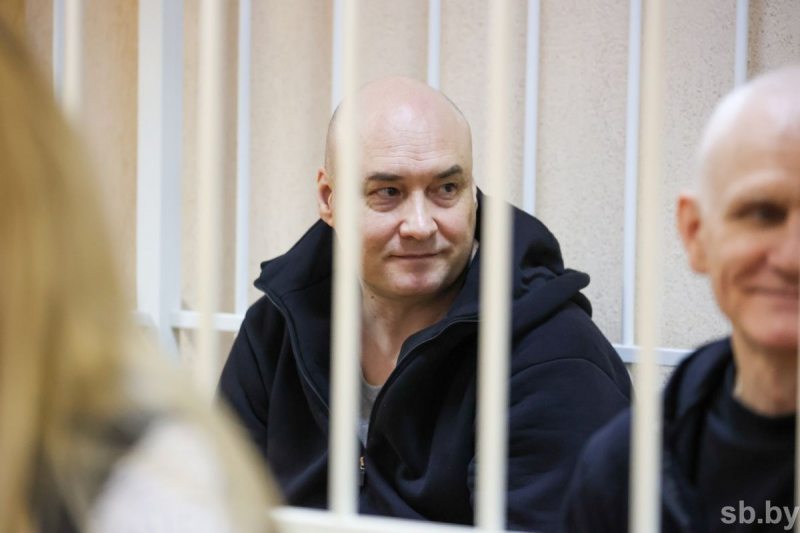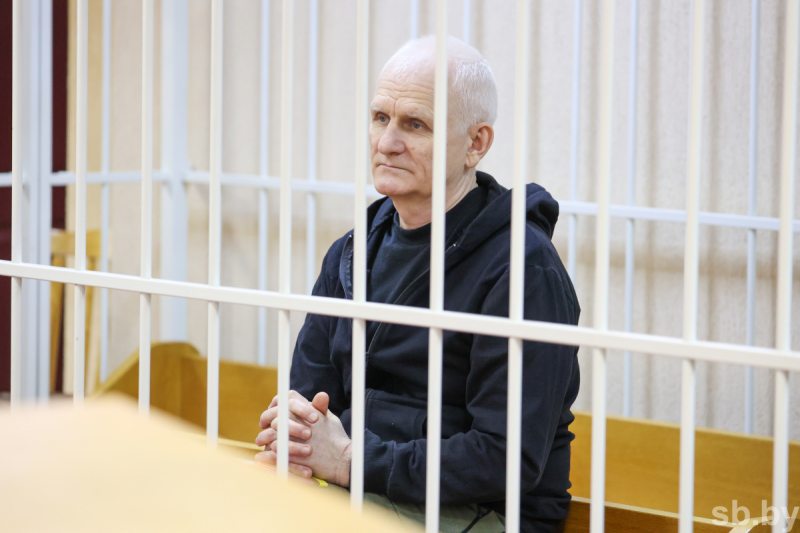Ales Bialiatski: Criminal proceedings are politically motivated, and Viasna has operated legally
The Lieninski District Court of Minsk continue to hear the case of Viasna leadership. Three of Viasna top-managers including its head and founder Nobel Peace Prize laureate Ales Bialiatski are in the dock. Another has left Belarus defendant is tried in absentia. The hearings are held almost every day. Read the latest news from the courtroom in our article.

Viasna members on trial: A day-by-day chronology of the court
Unsigned documents and mass tax inspection
On January 24, the 13th hearing on the Viasna case was held. About 120 volumes, almost half of the case materials, have been already studied by the court. At the last hearings the information from the electronic media of Dzmitryi Salauyou is considered, in particular, letters to different organizations that, according to the prosecution, provided grants for human rights activities. The contents of Uladzimir Labkovich’s data storage devices and his correspondence with partners are also under review.

- Uladzimir Labkovich in court.
Among the written materials of the case are requests to Belarusian banks, which accounts were used to receive funds from Pavasaris, a legal entity of Viasna in Lithuania, tax declarations of the accused, and correspondence between the Investigative Committee and the tax bodies.
The evidence base for the prosecution are, for example, bank records of cash withdrawals from card at a Lithuanian bank ATM.
However, Ales Bialiatski explained to the court that the documents presented by the prosecution could not serve as evidence, because the so-called reports “have neither beginning nor end”, are not certified by the signatures of the officials and do not contain the seal of the bank. He also noted that the dates of cash withdrawals did not coincide with the information of the state border service. On those dates, he had not been on the territory of the Republic of Lithuania, and therefore could not withdraw the money personally, Bialiatski said.

- Valiantsin Stefanovic in court.
From the presented written materials of the case, it became known that more than a hundred people were subjected to office tax audits. Almost two dozen people were found to have income and expense discrepancies. Among those audited were Ales Bialiatski's son Adam, Valiantsin Stefanovic’s wife Alina, and Uladzimir Labkovich’s wife Nina. Valiantsin Stefanovic explained that he had no possibility to write objections to the office audit act while in the detention center.
Ales Bialiatski: Criminal proceedings are politically motivated, and Viasna has operated legally

- Ales Bialiatski in court.
Viasna chairman also has drawn attention to the fact that if case files were evaluated in detail, one could come to a single conclusion: 90% of the money, according to the documents presented by the investigation, were used to pay salaries. The human rights defender insists that the activities of Viasna has been completely legal and comply with all international obligations of the Republic of Belarus, including the Declaration on Human Rights Defenders, adopted in 1998.
Bialiatski once again stated at the court that the case against Viasna leadership was politically motivated, and that is why they “were detained for 555 days in the smelly kennels of Valadarka”. He asked the state prosecutor Aliaksandr Karol why they why the initial accusations of tax evasion were dropped and replaced with smuggling in September 2022. Could that be because that Article 243 of the Criminal Code, tax evasion” provides for 3–7 years of imprisonment, while Article 228, “smuggling” raises the penalty to 7–12 years? The judge cynically suggested that Bialiatski should consult with his lawyer, who would explain the legal part of the question.
Ales Bialiatski takes an active position during the trial, in particular, he petitioned for additional time to get acquainted with the case materials. He argues that the parties of the trial should be in equal conditions. This motion was fully supported by his defense counsel. The court dismissed it, referring to the fact that Bialiatski had been acquainted with the materials of the case during the month allotted by the Code of Criminal Procedure, and also had another six days when the case was in court.
At the hearing, Bialiatski also asked the court and the prosecutor why the trial is so hasty. He reminded that in the 70s this tactic was used to prevent the defendants from getting acquainted with the case materials, and then added: "Give me 10 years". Judge Maryna Zapasnik demanded to stop remarks not on the merits of the case.
The trial continues.

















